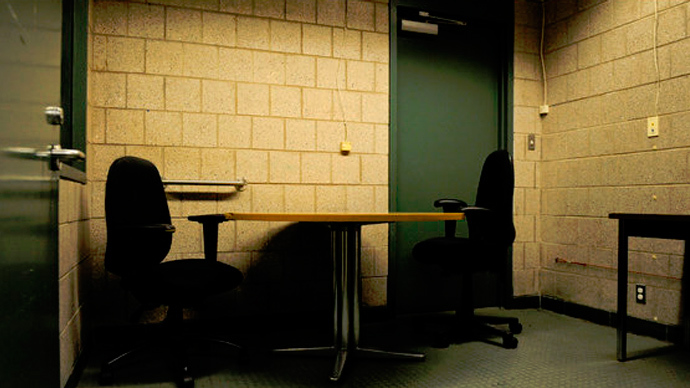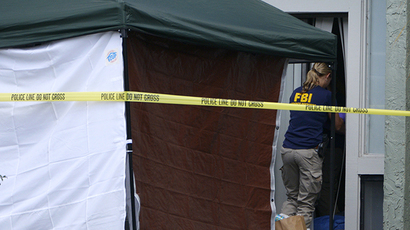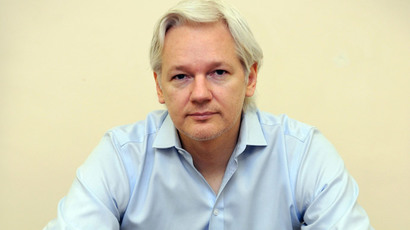FBI to quietly end policy that disallowed recording interrogations

The US Department of Justice has reversed a long-time Federal Bureau of Investigation policy that prohibited recording during interrogations of suspects in custody, with certain exceptions. The directive, issued on May 12, will go into effect on July 11.
The quiet change of course for the FBI and other Department of Justice (DOJ) agencies is described in a memorandum obtained by The Arizona Republic.
"This policy establishes a presumption that the Federal Bureau of Investigation (FBI), the Drug Enforcement Administration (DEA) the Bureau of Alcohol, Tobacco, Firearms and Explosives (ATF) and the United States Marshals Service (USMS) will electronically record statements made by individuals in their custody," reads the memo to federal prosecutors and criminal investigators from James M. Cole, deputy attorney general.
"This policy also encourages agents and prosecutors to consider electronic recording in investigative or other circumstances where the presumption does not apply,'' including the questioning of witnesses.
The change of policy came from collaboration between the DOJ and law enforcement personnel, according to an accompanying memo from Monty Wilkinson, director of the Executive Office for United States Attorneys.
The new policy does make exceptions for ill-defined public safety situations where the suspect may have information that could help avert a potentially life-threatening incident, which has been abused in the past, and for national security intelligence-gathering interviews, which have also seen controversy.
According to the memo, agents are also encouraged to record not just suspects in custody, but those not yet arrested, a status also often exploited by federal agents.
“The policy establishes a presumption in favor of electronically recording custodial interviews, with certain exceptions, and encourages agents and prosecutors to consider taping outside of custodial interrogations,” the memo reads.
The DOJ and FBI did not respond to the Republic’s requests for more details on the new policy.
The DOJ has long resisted calls for its law enforcements agents to employ audio and video recording in its interrogation process. Proponents of recording say the reform will bring the FBI and others into more modern standards of policing and strengthen trust in the American criminal justice system.
FBI agents have long used basic methods including reliance on their memories, interpretations of events, and handwritten notes – the originals often destroyed – that are later transcribed on what is known as a 302 form.
The absence of recorded interviews has long led to the wrongful convictions of the innocent based on, among other issues, jury deference to FBI agent testimony – at times misremembered, distorted, or fabricated. But the old policy has also led to the exoneration of ultimately guilty suspects, as skilful defense lawyers have been able to undermine honest testimony from agents by exploiting the FBI’s outdated methods.
Critics of the traditional system say it has led to corrupted or flawed investigations, spoiled or lost evidence, unprofessional agent conduct, and false convictions. The DOJ practice has led to problems in major trials, including that of Osama bin Laden, television personality Martha Stewart, Oklahoma City bombing suspect Terry Nichols, and many others who never receive publicity.
Paul Charlton, a former US Attorney for Arizona who was fired by President George W. Bush in part because he pressed the DOJ on its no-recording policy, hailed the reversal.
"It's a great day," Charlton told the Republic. "Really extraordinary. It's a step in the right direction for law enforcement."
Attorney and ex-FBI agent Fred Whitehurst, who later became an agency whistleblower, said the new policy is “delightful.”
“What have we got to hide?” he added.
The FBI’s past assertions that recording suspects is a logistical problem or that it inhibits honesty during interrogations have been disputed by police officers, detectives, and criminology professors.
At least eight US states actually mandate taping of criminal suspects, based on either statute or court decrees, according to the Republic.
An internal FBI memo, reported by The New York Times in 2006, shed some light on the reason for the no-taping policy. It said that jurors might be offended by FBI tactics and acquit defendants if they could see the legal but deceitful tricks agents use to obtain information or confessions.
Larry Hammond, chair of the Arizona Justice Project, said recording interrogations will help stop false confessions and wrongful convictions.
"I cannot understand why this hasn't happened sooner," Hammond said.














